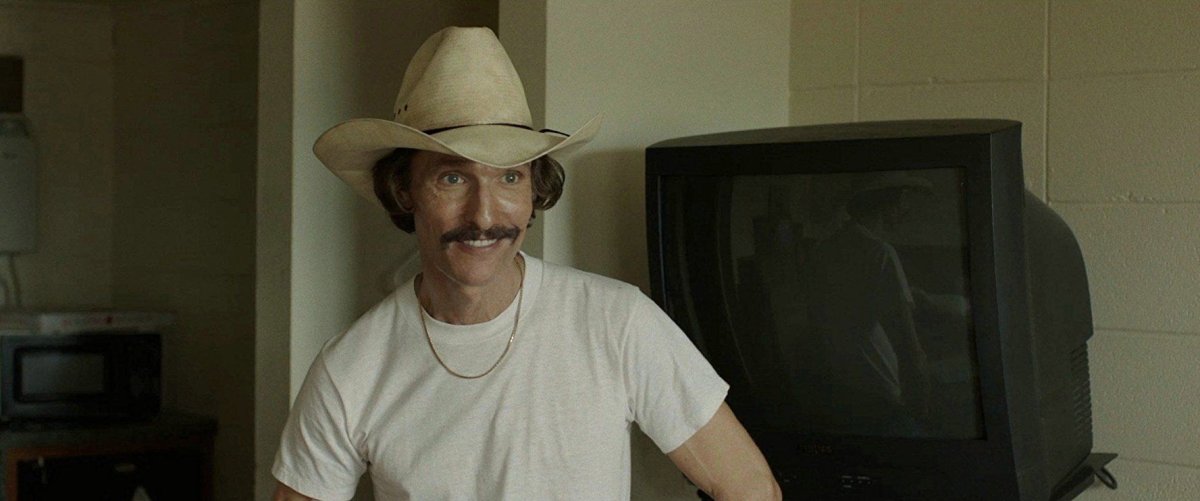Sitting at the Toronto International Film Festival (TIFF) in September, I could feel the air leave the room when I said: "Google is the biggest threat to the entertainment business."
In the current landscape, where powerful Silicon Valley monopolies are being chastised for their role in multiple scandals, I'm surprised my comment shocked so many.
However, it's important that our nation's leaders understand who is affected when copyright protections are flouted and the wholesale theft of our work is induced and facilitated by some of the most powerful companies the world has ever seen.
This is especially urgent because of the renegotiation of the North American Free Trade Agreement (NAFTA) currently underway.
I've been in the movie business for three decades now. I started in the '80s – where my passion for independent cinema led me to co-head the indie division at the William Morris Agency.
Now, I'm a producer of independent films like Mudbound and Dallas Buyers Club. From this vantage point, I've clearly seen how Internet piracy has decimated the independent film industry.

The problem dates back to 1998 – when the Digital Millennium Copyright Act (DMCA) was passed. The DMCA predates the Internet as we know it; 1998 was the same year Google was founded, and when Mark Zuckerberg entered high school.
Congress, intending to assist the growth of a young industry, established what became known as "Safe Harbor" provisions, which protected Internet companies when their platforms were used to distribute pirated material.
Without the provision, nascent Google might have had to face the consequences of serving up pirated content – given their central role in enabling the infringement.
Back then, Congress reasoned that creatives would send a few notices to some Internet hosting company and ask them to kindly remove a piece of content. How quaint – and not at all forward thinking.
What started out as a helping hand to an infant industry has become a shield against accountability that some of the largest companies in the world hide behind. Piracy has run rampant on the Internet, and creatives have no chance of keeping up with all of it.
Google alone receives 900 million takedown notices every year. While they usually get around to taking down the offending link, it rarely helps because a new one appears in its place – it's endless. Overwhelmed creatives simply run out of steam trying to find all the pirate links – and thanks to the DMCA, that's not Google's problem.
Now, almost 20 years later, Google and their allies are trying to weaken decades of U.S. support for creatives in critical international markets and to force other countries to adopt the DMCA bailout, including Canada and Mexico in the NAFTA negotiations.
This is a blatant attempt to continue their practice of shrugging their shoulders whenever creatives are stolen from through their platform – now just internationally.
This is personal for me. As a producer, I've got skin in the game.
My film Dallas Buyers Club grossed over $50 million worldwide, which translates to approximately 7 million tickets sold. And just during its theatrical run, Dallas Buyers Club suffered roughly 22 million piracy transactions – more than three times the number of legitimate transactions.
I could simply "Google" the film and multiple websites would allow me to illegally download or stream it for free.
If just 5 percent of those pirated transactions had been paid tickets, downloads, or rentals, the film would have earned at least an additional $4.4 million (at a low rental fee of $3.99). That kind of money is life or death for an independent film and the filmmakers who sacrificed everything to get their vision onscreen.
NAFTA should protect the rights of working Americans in the creative industries – and copyright supports millions of them. 84 percent of all businesses in entertainment employ under ten people – truck drivers, editors, production assistants, writers, caterers, makeup artists – and they all rely on copyright protections to keep their doors open.
Consider my most recent film Mudbound – made in the rural Louisiana area where we shot it. The film generated $10 million locally, created over 100 area jobs and paid out $5 million in wages. If policymakers continue to weaken copyrights at home and abroad, states like Louisiana will see this kind of financial boost much less often.
We cannot weaken the U.S. economy by passing a weak version of NAFTA. The renegotiated NAFTA could easily become the new standard for global copyright regulation.
Our leaders need to be reminded that our industry makes up nearly 7 percent percent of our country's economy. We create more export revenue than agriculture, aeronautics, and pharmaceuticals. That's too much to hand over to Silicon Valley or overseas pirates.
I believe copyright protections must be strengthened . I know this because what ends up in NAFTA is going to affect me, and the other 5.5 million Americans employed by copyright-dependent businesses.
For me, it comes down to a very basic choice. Should NAFTA support creatives' rights to control the work they've created or simply continue to give Silicon Valley unchecked power?
I know which side I'm on.
Cassian Elwes served as producer on Mudbound and Lee Daniels' s The Butler and Executive Producer of Dallas Buyers Club, All is Lost, and other films. He was head of the independent film division of William Morris.
Uncommon Knowledge
Newsweek is committed to challenging conventional wisdom and finding connections in the search for common ground.
Newsweek is committed to challenging conventional wisdom and finding connections in the search for common ground.
About the writer
To read how Newsweek uses AI as a newsroom tool, Click here.








